So, you’ve got your hands on some awesome coffee – the kind that makes your kitchen smell unreal and your mornings way better. But after a while, something’s off. That punchy aroma you loved? Kind of vanished. We’ve all been there.
At Beanworks, we’re all about keeping that bold flavour journey alive, not just when you open the bag, but right through to the last scoop. We get it: figuring out how to store coffee beans correctly can be confusing.
That’s why we’ve put this blog together – packed with the best (and worst) ways to store your beans, based on real experience from roasting to order every single day.
Why Proper Coffee Bean Storage Matters
If you care about how your coffee tastes (and we’re guessing you do), then how you store your beans is a big deal. Let’s go into why that is.
Commodity Vs. Speciality Coffee
There are two main types of coffee – commodity and speciality – and the one you’re drinking makes a big difference when it comes to storage.
Commodity coffee (like instant coffee) is designed to last longer on shelves, whilst speciality coffee is about capturing complex, vibrant flavours at their peak. If you’re switching to speciality coffee or just getting curious about flavour, proper storage becomes even more important. Letting things like oxygen and moisture get to your beans can cause those delicate flavour notes to fade fast – and that means your coffee won’t taste anywhere near as exciting as it should.
Preserving Flavour Notes and Consistency
Speciality coffee is usually roasted to order so you can enjoy the flavours at their absolute best. But there’s a sweet spot, typically from four days to a couple of weeks after roasting, where the coffee is at its peak.
Now, if you like to buy smaller coffee bags and work through them quickly, you’re already doing your beans a big favour. But if you’ve found a coffee you love (and want to stock up on), you’ve still got options.
Bulk buying isn’t a problem when you know how to store your beans right. In fact, things like airtight containers or even freezing (yes, really!) can help stretch that flavour window and preserve freshness.
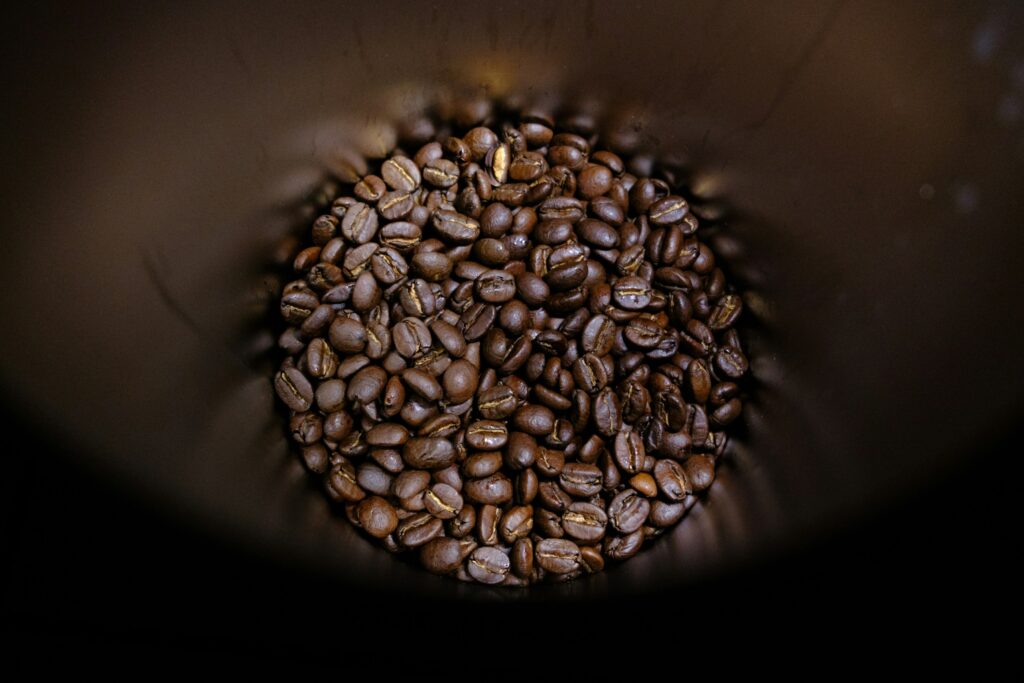
This is especially true if you’re brewing espresso. It’s one of the most rewarding ways to enjoy coffee, but it’s also a bit sensitive. Proper storage keeps your beans more stable, so you can stay in that espresso sweet spot for longer.
The Main Enemies of Freshly Roasted Coffee Beans
Storing coffee sounds simple, but there’s a whole bunch of things quietly working against your beans. These flavour thieves are sneaky, and they don’t care how amazing your coffee is. The good news? Once you know what you’re up against, it’s easy to keep them in check.
Oxygen
Oxygen might be great for humans, but it’s terrible for coffee. As soon as freshly roasted beans come into contact with air, oxidation kicks in – and with it, flavour loss. That bold, exciting taste you’re after? Oxygen is the fastest way to dull it down. This is why airtight storage is your coffee’s best friend. Lock it out, keep the flavour in.
Light
You might not think light is a big deal, but both direct sunlight and artificial light can mess with the delicate compounds in your beans – a chemical process called photodegradation. Best move? Keep your coffee in a cupboard or opaque container that won’t let light sneak through.
Heat
Beans like it cool and calm. If they’re exposed to heat – think near your oven or on a sunny windowsill – they’ll age faster. Room temperature is ideal.
Moisture
Moisture is one of the trickiest enemies because it often goes unnoticed. It brings oxygen along for the ride and can even cause mould if your beans get damp. That’s why we always recommend keeping your beans somewhere dry and sealed up tight.
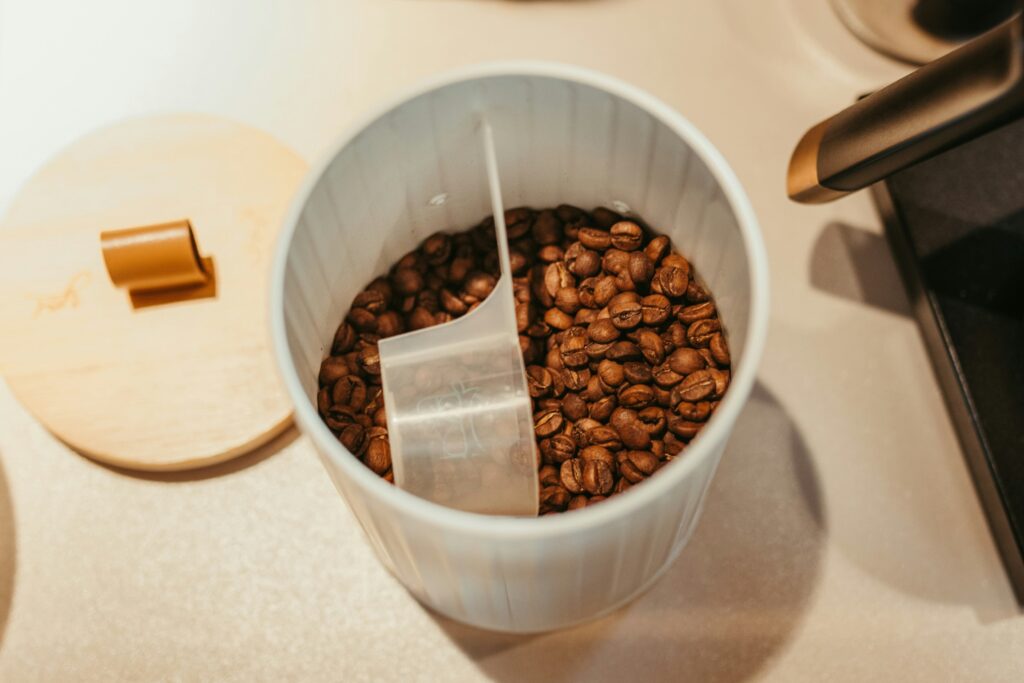
How and Where to Store Coffee Beans for Maximum Freshness
There are a few simple ways to keep your coffee tasting bolder for longer, depending on what you’ve got at home.
What Makes a Good Coffee Storage Container?
Airtight storage is your top priority. A container that seals properly will keep oxygen and moisture out – the two main things that can flatten your flavour fast. After that, it’s all about keeping your beans cool, dry, and in the dark.
Recommended Storage Options
So, with those things in mind, here are the best storage options for keeping your coffee beans fresh:
• The bag your coffee came in. If it’s resealable, there’s no need to take your coffee out of the bag it came in. These bags are designed for freshness – most have a one-way valve that lets carbon dioxide escape while keeping oxygen out. Just make sure it’s really sealed each time you close it for the best brewing results.
• A container made for coffee. This is where things level up. A container made specifically for coffee, with a mechanism that pushes air out, will work wonders for keeping your beans tasting great. That’s freshness locked all the way in. Some use vacuum seals whilst others have lids that lower down to the coffee’s level, releasing the air from the container out through a valve.
• A regular airtight and opaque container. Whilst coffee-specific containers tend to work best, you can store your coffee in any airtight container as long as it’s opaque. Want to ignore that last part and use mason jars? Go for it – just keep them in a dark place.
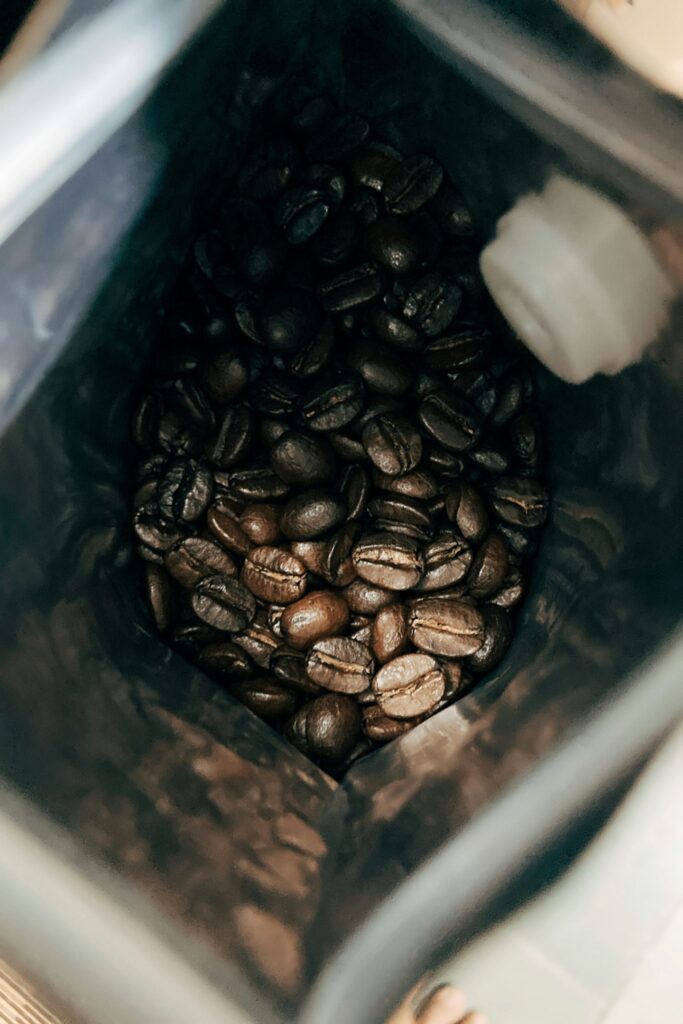
Can You Store Coffee Beans in Grinders?
We get it – leaving your beans in the grinder feels convenient. They’re right there, ready to go. No opening bags, no scooping. But here’s the thing: the hopper on your grinder isn’t built for storage.
Your hopper’s main job is to feed beans into the grinder, not to protect them. Most aren’t airtight, and they definitely don’t block out light or heat. That means your beans are just sitting there, exposed, slowly losing the stuff that makes them taste awesome.
It can work for coffee shops because they serve the coffee quickly enough. But at home, you need something more suitable for long-term storage.
Are Bean Hoppers Airtight?
Some grinders come with lids, which can make it seem like they’re sealed, but they’re only blocking oxygen from the top. If air can get in from the bottom (and it can with most grinders), your beans will start to taste stale faster than you think.
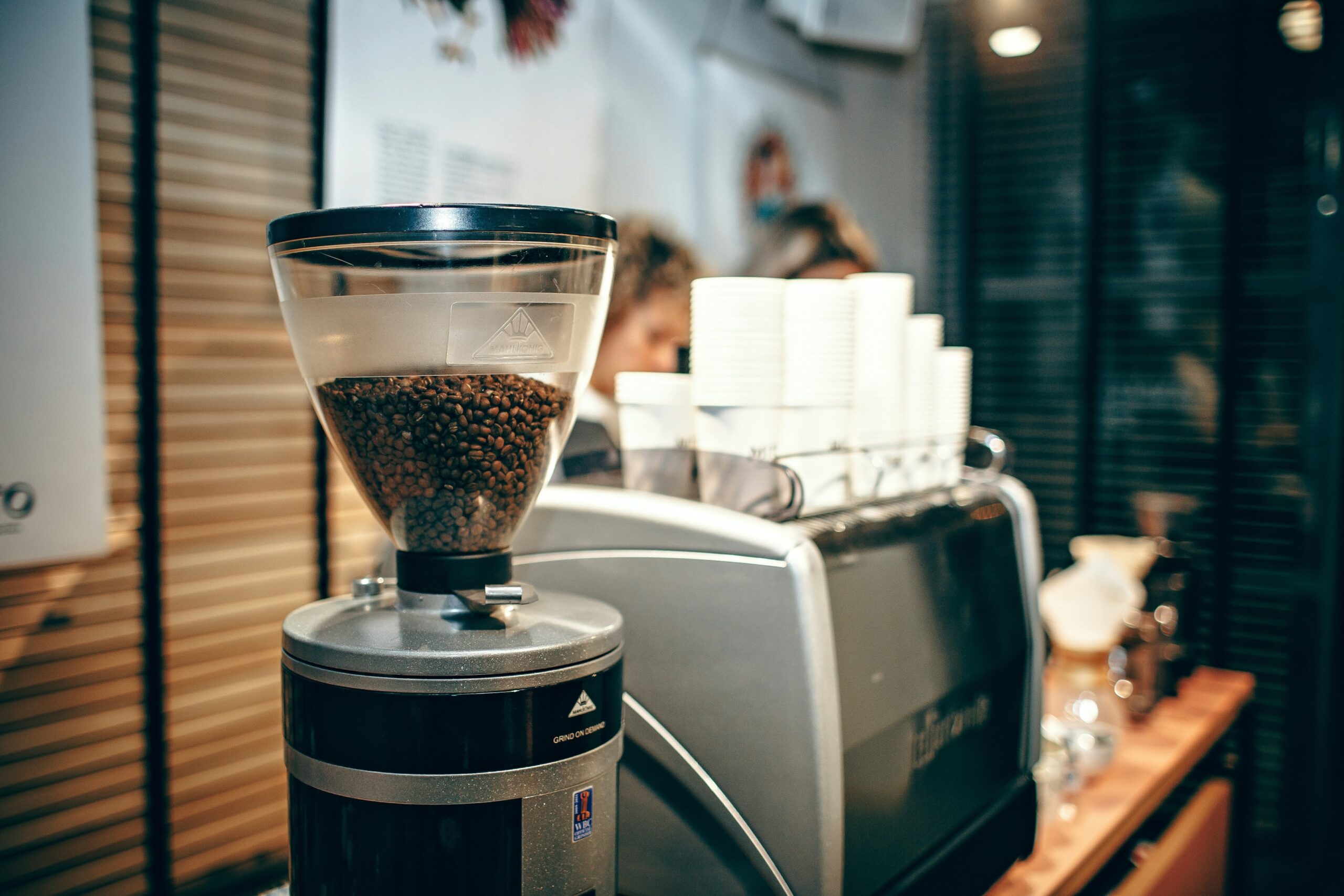
Should You Store Coffee Beans in the Freezer?
So, can you store coffee beans in the freezer? Absolutely. But how you freeze them matters just as much as whether you do.
When to Freeze Coffee Beans
Most of the time, you probably won’t need to freeze your coffee, especially if you’re buying smaller bags and getting through them in a couple of weeks. But if you know you won’t finish your beans in time, the freezer can be your friend.
How to Freeze Coffee Beans
Without any further ado, here’s how to freeze your coffee the right way:
Freeze Small Quantities
Split your beans into smaller portions before freezing. That way, you only ever defrost what you’re going to use over the next week – no opening and closing the same bag over and over (that’s how moisture and oxygen sneak in).
Only Freeze Whole Beans
Freezing works best for whole beans. So if you’re freezing, keep it whole and grind it fresh when you’re ready to brew. Your taste buds will thank you.
Vacuum-Sealed or Airtight Containers
This part’s key. Use a vacuum-sealed or airtight container or bag to keep your beans protected from freezer burn and any unwanted smells. Trust us, you don’t want your coffee tasting like frozen peas.
Let Beans Reach Room Temperature Before Opening
When you take your beans out of the freezer, wait until they’ve completely warmed up before opening the container.
Can You Freeze Beans In Their Original Packaging?
Yes, you can freeze beans in their original packaging – if the bag is sealed and made from strong, moisture-proof material. If you’re unsure, it’s safer to transfer them to a container.
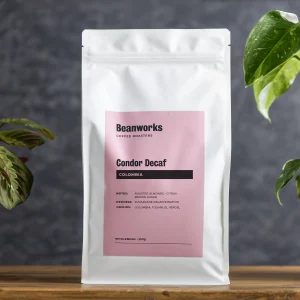
Should You Store Coffee Beans in the Fridge?
No, you shouldn’t store coffee beans in the fridge. It might seem like a good idea (cold temperature = fresh, right?), but when it comes to coffee, the fridge can actually do more harm than good.
Fridges are full of moisture and odours, and coffee beans love to soak those up. You might be able to alleviate that problem with an airtight container, but every time you remove the beans from the fridge they’ll fluctuate in temperature, which speeds up staleness. Add on the light turning on and off with the door opening, and fridge is a recipe for unhappy beans.
Why Whole Beans Stay Fresher Longer Than Ground Coffee
Whole beans hold onto their flavour longer than ground coffee. Why? It’s all about surface area. Once coffee is ground, it’s exposed to way more air – which means oxygen can get to those precious flavours a lot faster. Whole beans, on the other hand, stay protected until the moment you grind them. That’s why we always recommend using freshly ground coffee when you’re ready to brew.
Best Way to Store Ground Coffee
If you’re going with pre-ground, just treat it the same way you’d treat whole beans:
• Keep it in an airtight container
• Store it somewhere cool, dark, and dry
• Avoid opening and closing it more than you need to
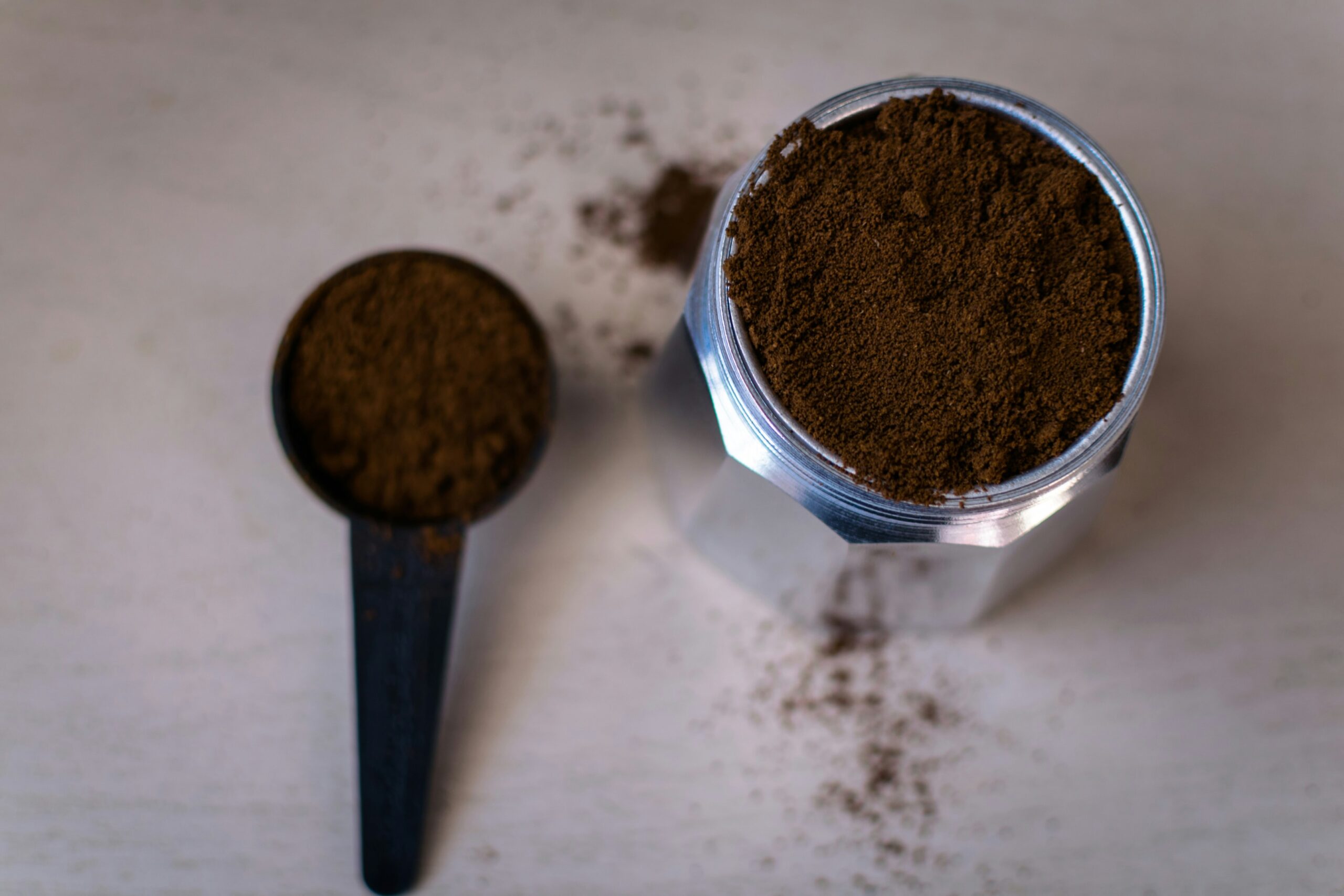
Does Coffee Expire?
Does coffee actually expire? Not in the same way milk or eggs do. You won’t get sick from old beans, but you will taste the difference. Coffee doesn’t exactly go “off,” but it definitely goes stale. Once that happens, all those bold, exciting flavours start to fade.
How Long Do Coffee Beans Last?
Most bags will have a roast date and sometimes a best before date. The roast date tells you when the beans were, well, roasted. You’ll want to use the coffee within 3-4 weeks of this date to get the sweet spot. The best before date can be much longer than this, and it’s more of a rough guide for when the coffee’s likely to stop tasting its best. Think of it as the coffee’s shelf life.
Signs of Stale Beans
Not sure if your beans have passed their prime? Here’s what to look out for:
• The smell is dull (not that bold, punchy aroma you were expecting).
• The flavour’s gone flat.
• Your espresso isn’t behaving and you’re getting inconsistent shots.
Discover Your New Favourite Speciality Coffee
Ready to put your new storage skills to good use?
Check out our roasted-to-order coffee beans – packed with bold flavours, exciting origins, and awesome profiles you’ll look forward to waking up for. Whether you’re into juicy fruit bombs or smooth chocolatey brews, we’ve got something that’ll make your next cup so worth it.
